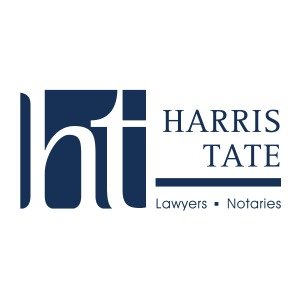Best Creditor Lawyers in New Zealand
Share your needs with us, get contacted by law firms.
Free. Takes 2 min.
Or refine your search by selecting a city:
List of the best lawyers in New Zealand
About Creditor Law in New Zealand
Creditor law in New Zealand deals with the rights and duties of individuals or entities that are owed money by others. It encompasses various legal frameworks aimed at ensuring fair treatment for creditors, while balancing the rights of debtors. This legal area often involves issues such as debt recovery, insolvency, secured transactions, and bankruptcy processes.
Why You May Need a Lawyer
Needing legal help in the field of creditor law can arise from several situations. Business owners might require assistance with debt collection from delinquent accounts, or individuals may need guidance in dealing with bankruptcy or insolvency proceedings. Lawyers specializing in creditor law can offer advice on securing debts, negotiating repayment plans, and representing creditors in court to enforce payment obligations.
Local Laws Overview
In New Zealand, creditor law is informed by several key pieces of legislation. The Personal Property Securities Act 1999 provides the framework for secured transactions. The Companies Act 1993 and the Insolvency Act 2006 govern bankruptcy and insolvency processes. Additionally, the Credit Contracts and Consumer Finance Act 2003 regulates consumer credit contracts to protect borrowers from unfair practices. Creditors must adhere to these laws to ensure legal and fair dealings with debtors.
Frequently Asked Questions
What is the first step in recovering an unpaid debt?
The initial step usually involves sending a formal demand for payment. This document outlines the debt owed and requests settlement by a specific date.
Can a creditor take back goods sold on credit in New Zealand?
Yes, if a creditor has a valid retention of title clause or a security interest registered under the Personal Property Securities Act, they may reclaim goods if debtors fail to pay.
How does bankruptcy affect creditor claims?
Once a debtor is declared bankrupt, creditors must cease individual collection efforts and instead lodge claims with the official assignee handling the debtor's bankruptcy estate.
What is the significance of a security interest?
A security interest grants a creditor a legal claim over a debtor's assets used as collateral, improving the creditor's position in the event of debtor default.
How long do creditors have to file a claim in a liquidation proceeding?
Creditors typically have 20 working days from the appointment of a liquidator to submit their claims; however, this period can vary if stipulated by the liquidator.
Can a creditor negotiate alternative repayment agreements with a debtor?
Yes, creditors can negotiate repayment arrangements, such as extended payment plans, to avoid lengthy and costly litigation processes.
What happens if a creditor doesn't register their interest under the PPSA?
Failure to register a security interest under the PPSA may result in the creditor losing priority over secured assets to other registered creditors.
Are there limitations on the interest and fees creditors can charge?
The Credit Contracts and Consumer Finance Act sets regulations on credit fees and interest rates, preventing onerous terms that unfairly disadvantage borrowers.
Can creditors enforce a foreign judgment in New Zealand?
Foreign judgments can be enforced in New Zealand under certain conditions, generally requiring recognition by New Zealand courts under reciprocal enforcement arrangements.
What role do debt collection agencies play for creditors?
Debt collection agencies can be contracted by creditors to recover outstanding debts, leveraging their expertise and resources to increase recovery rates.
Additional Resources
For further assistance, refer to the following resources:
- New Zealand Ministry of Business, Innovation and Employment (MBIE) - Provides information on business activities and legal frameworks.
- New Zealand Insolvency and Trustee Service - Offers guidance on insolvency and bankruptcy proceedings.
- Community Law Centres - Deliver free legal help and resources across various regions.
Next Steps
If you need legal assistance in creditor-related matters, consider the following steps:
- Identify your specific creditor issue and gather all relevant documentation.
- Consult with a lawyer specializing in creditor law to discuss your options and determine the best course of action.
- Consider obtaining a referral from local community law centers or professional legal organizations to find a suitable lawyer.
- Stay informed about your rights and obligations by reviewing applicable legislation and seeking ongoing legal advice as necessary.
Lawzana helps you find the best lawyers and law firms in New Zealand through a curated and pre-screened list of qualified legal professionals. Our platform offers rankings and detailed profiles of attorneys and law firms, allowing you to compare based on practice areas, including Creditor, experience, and client feedback.
Each profile includes a description of the firm's areas of practice, client reviews, team members and partners, year of establishment, spoken languages, office locations, contact information, social media presence, and any published articles or resources. Most firms on our platform speak English and are experienced in both local and international legal matters.
Get a quote from top-rated law firms in New Zealand — quickly, securely, and without unnecessary hassle.
Disclaimer:
The information provided on this page is for general informational purposes only and does not constitute legal advice. While we strive to ensure the accuracy and relevance of the content, legal information may change over time, and interpretations of the law can vary. You should always consult with a qualified legal professional for advice specific to your situation.
We disclaim all liability for actions taken or not taken based on the content of this page. If you believe any information is incorrect or outdated, please contact us, and we will review and update it where appropriate.
Browse creditor law firms by city in New Zealand
Refine your search by selecting a city.

















